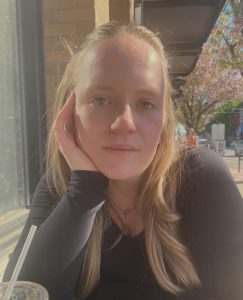On January 26th, the Office of Regional and International Community Engagement hosted an event titled “What Does Allyship Really Mean?”, the second instalment of the What Does It Really Mean series, with three incredible speakers. Hannah Sullivan Facknitz (they/she) is a queer, disabled, sick and Mad artist, writer activist-educator and historian. Natasha Jung is the Founder, Editor in Chief and Executive Producer of Cold Tea Collective, a media publication for, by and about Asian millennials in North America. Dallas Gonsalves is the Director of Gathering Place Community Center, which offers programs and services to the Downtown South community.
What is Allyship?
As this was the crux of this event, the event began with trying to tackle this question. Dallas began by saying that despite it not being a term that is often used, “[allyship] is something that we bring into the fabric and landscape of the work we are doing” which includes building community. Natasha explained that she’d really started thinking about the concept of allyship in the last two years, citing the murder of George Floyd and the following resurgence of the Black Lives Matter movement. As someone working in media, she explained there was a pressure to perfect the balance between performative and real allyship. But she outlined questions that helped guide the actions taken: What communities could potentially be harmed by our actions? How do we decenter ourselves in the conversation? What work do we need to do so we don’t have to rely on the emotional labour of the community we intend to ally with? Hannah reiterated that Natasha had highlighted that allyship is not self-defined but rather by those you intend to help. They continued by saying that they prefer to use the words solidarity and accomplice, because the word ‘allyship’ has been coopted by very moderate people and thus taking away from the radical nature. They beautifully summed it up describing that “the accomplice work requires you to distrust your empathy as something that can help you understand something that someone unlike you is experiencing.”
Structural Change
All three speakers discussed the frustrations they had with change at structural levels, including the corporate world and academia. On the point of the corporate world, Natasha said that the phrase “nothing about us, without us” is a guiding motto as it encourages any work done is meaningful and impactful and should be done in the best interest of those who you are trying to help. She continued by giving the example of employee resource groups: you can create these spaces but without the power to influence and give decisions, they are performative. Dallas encouraged people to “continuously challenge” the structures we’ve been told to follow.
Privilege, Power and Allyship
A question from an attendee asked, “is losing your privilege an essential part of allyship?” Hannah contended that “the more you realise where your privilege comes from, the more disgusted you should be.” Natasha also pointed out that you should use your privilege to speak up for change, you shouldn’t be afraid of losing it, the former should be your guide. Another attendee directed a question at Natasha regarding how to talk to his Asian family about the BLM movement, as he noticed an apprehensiveness to engage with anti-racism dialogues in a sense of need to preserve to ‘model minority’ image that many racialized immigrants subscribe to. She quoted an article that Cold Tea Collective had produced regarding this exact topic, and highlighted as settlers of colour, the Asian community needs to show up. Regarding parents and elders, Dallas encouraged that as much as we have to learn from our elders they too have a lot to learn from the younger generation especially regarding social movements. She also ended by saying that listening is a huge act of allyship, you don’t always need to provide solutions.
The event was emotional and informative, and an excellent second instalment of ORICE’s What Does It Really Mean event series.
Have a suggestion for our series? Contact us!




